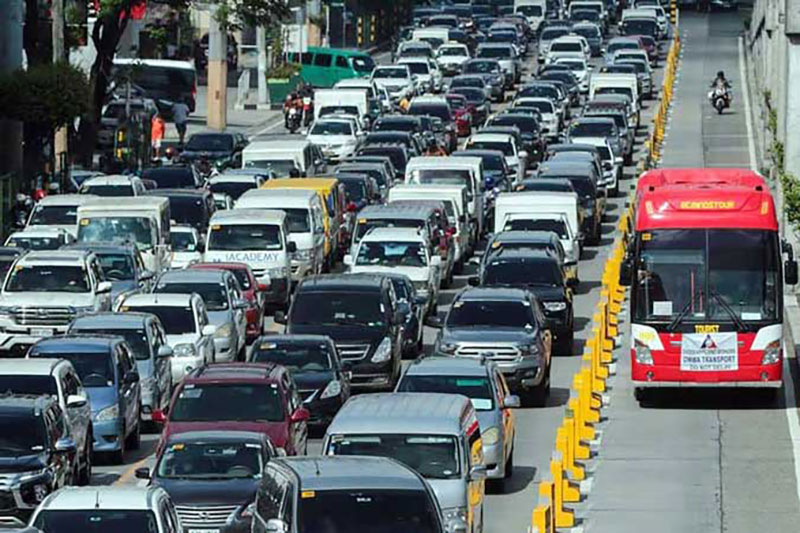Philexport pushing for review of road user’s tax

By Justine Irish D. Tabile, Reporter
THE Philippine Exporters Confederation, Inc. (Philexport) said that the government should review proposals to impose a motor vehicle tax, and expressed doubt that such a tax will ultimately control vehicle numbers.
“It is not a problem for us if you tax the luxuries, even if that affects most businessmen; they are willing to do that,” Philexport President Sergio R. Ortiz-Luis told reporters last week.
“However, I think they should first study the road user’s tax. I think what they should find out first is why are the number of cars is growing,” he said.
At his second State of the Nation Address, President Ferdinand R. Marcos, Jr. called for legislators to focus on tax measures, including a motor vehicle user’s charge or road tax.
In July, the House ways and means committee approved amendments to the law regulating motor vehicle user’s charges (MVUCs) which taxes all private, for-hire, and government-owned vehicles.
For-hire vehicles will receive a 50% discount on the MVUC, while motorcycles and tricycles are exempt. The revenue from the MVUC is expected to finance the public utility vehicle modernization program and the government’s road infrastructure and safety programs.
According to Mr. Ortiz-Luis, many cars are now being parked on the roads, which he said was caused by temporary measures that were made permanent.
“Before, when you had one garage, you would only have one car. Now, you can see cars parked on the side of the roads,” he said, blaming the number coding scheme that pushed motorists to buy more cars.
“(Number coding) was introduced as a temporary measure during the construction of the Metro Rail Transit but they made it a permanent measure. And because of that, people bought more cars. Now, if they have the money, they will buy,” he added.
He said this is the reason why the car industry is growing continuously whatever the state of the economy.
“We still do not have a developed mass transportation system, which we should first fix. They said that the measure of being a developed country is when the rich people ride mass transit not when everyone is buying cars, even the poor,” he said.
In July, the Philippine automotive industry saw a 33% year-on-year rise in sales to 37,086 units, the Chamber of Automotive Manufacturers of the Philippines, Inc. (CAMPI) and the Truck Manufacturers Association (TMA) reported.
For the first seven months of the year, CAMPI-TMA members sold 239,501 units, up 31.1%.



